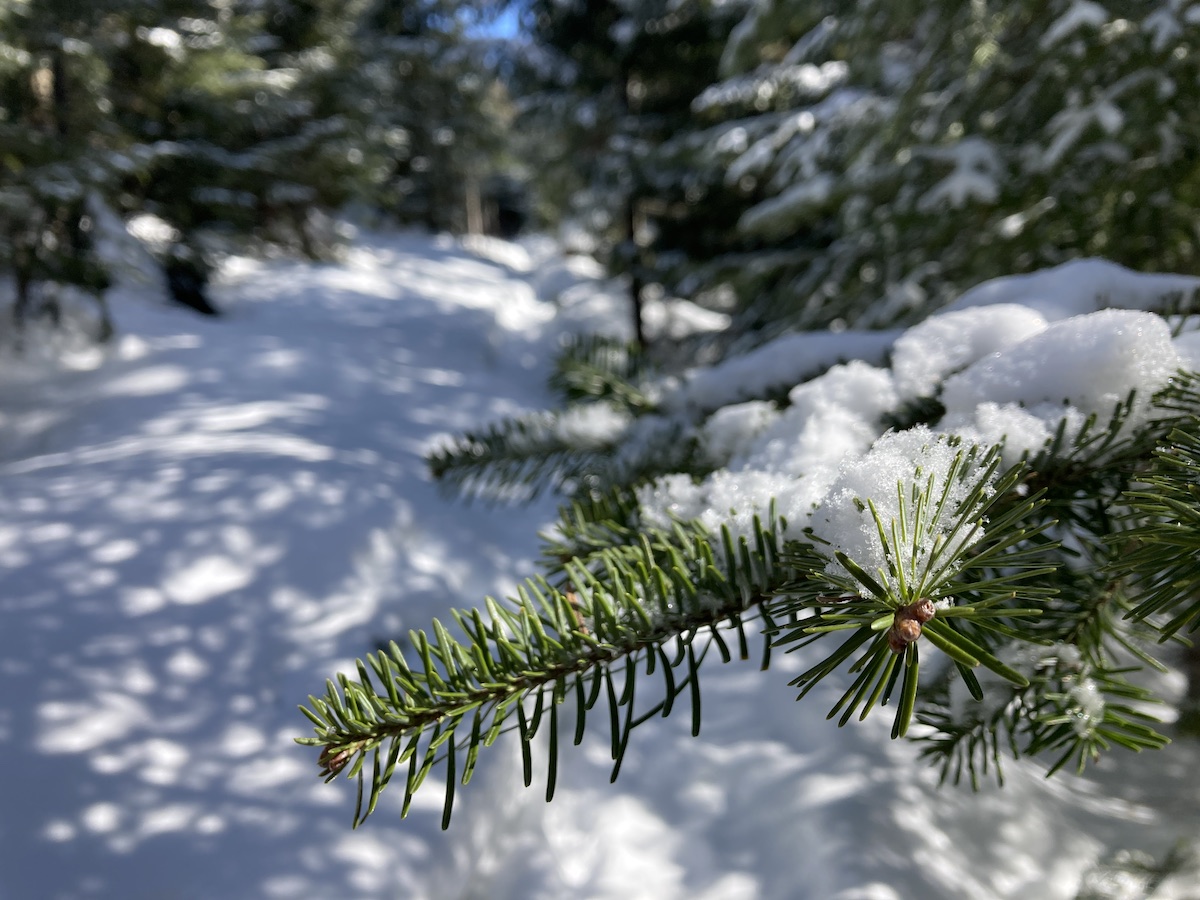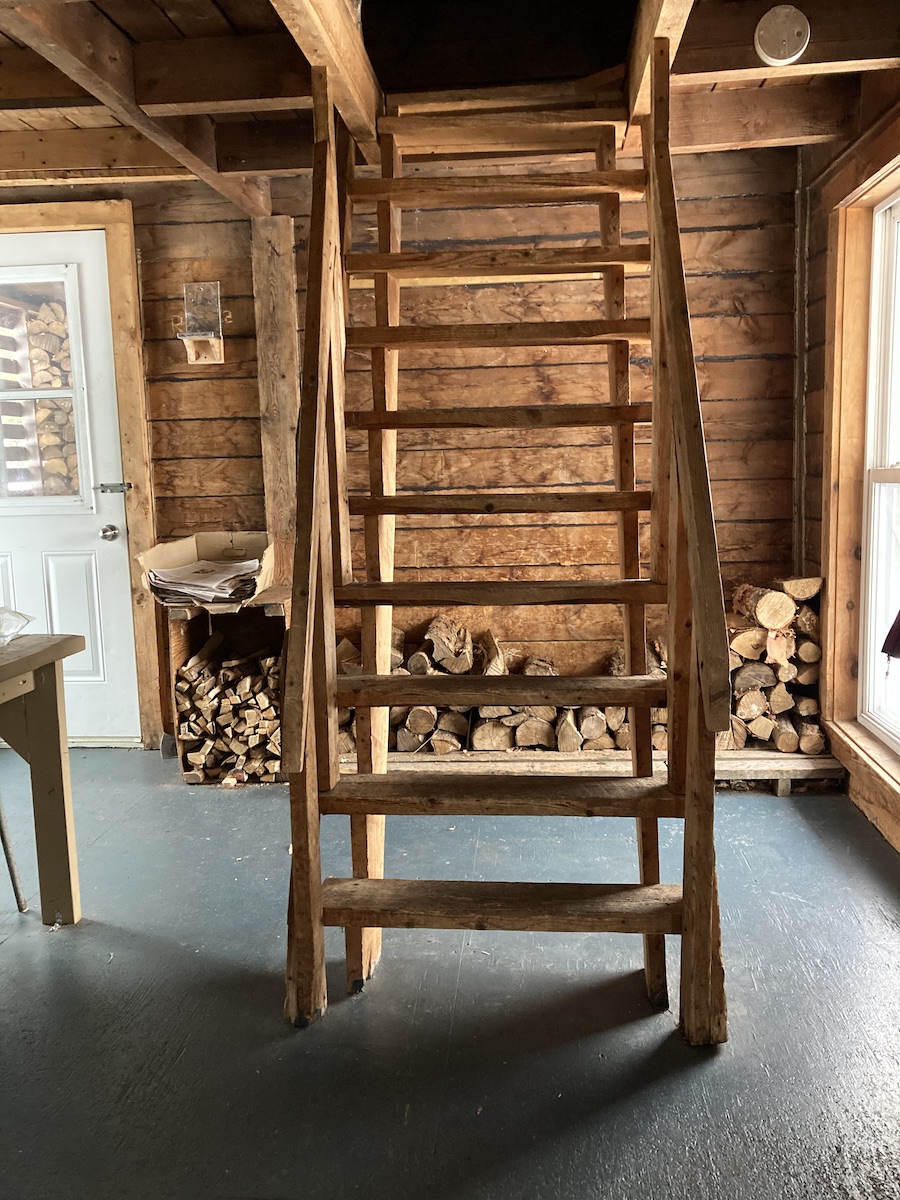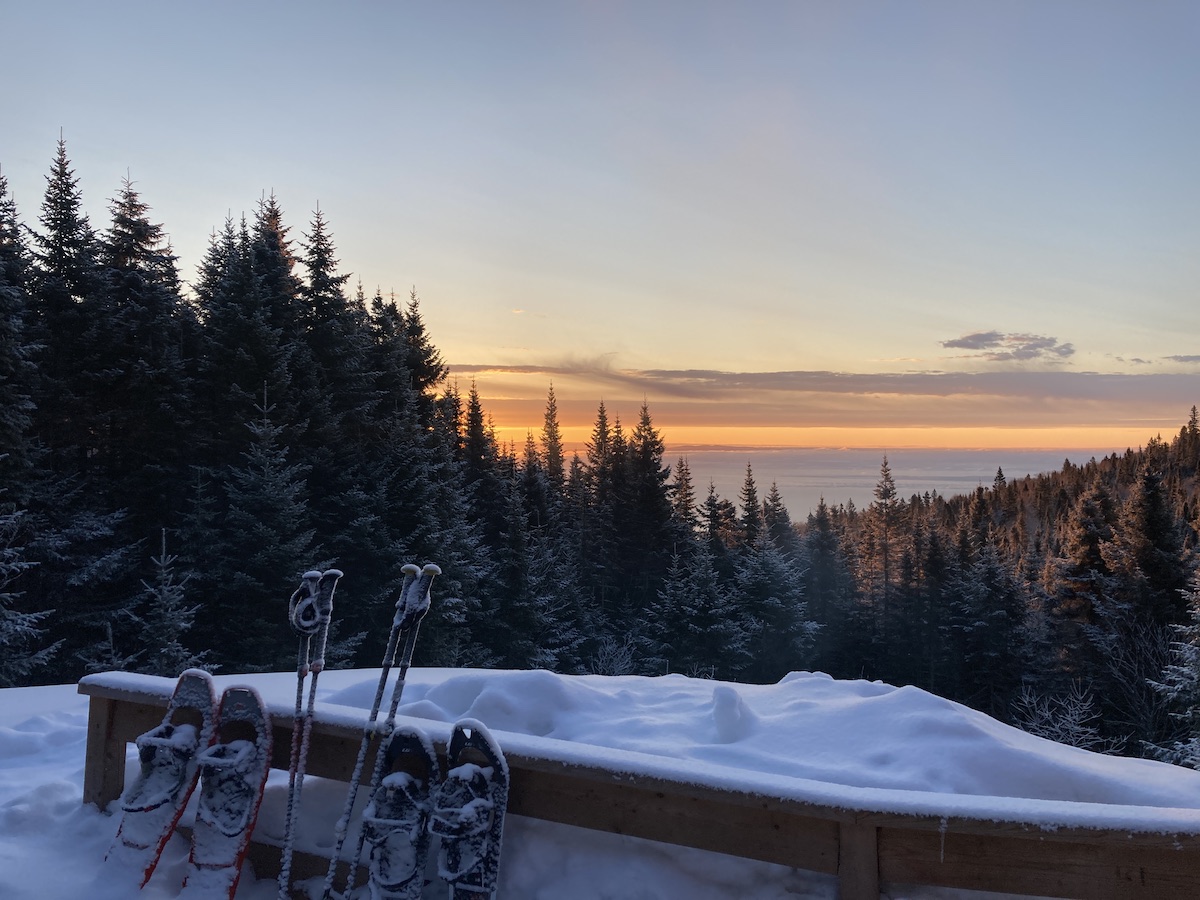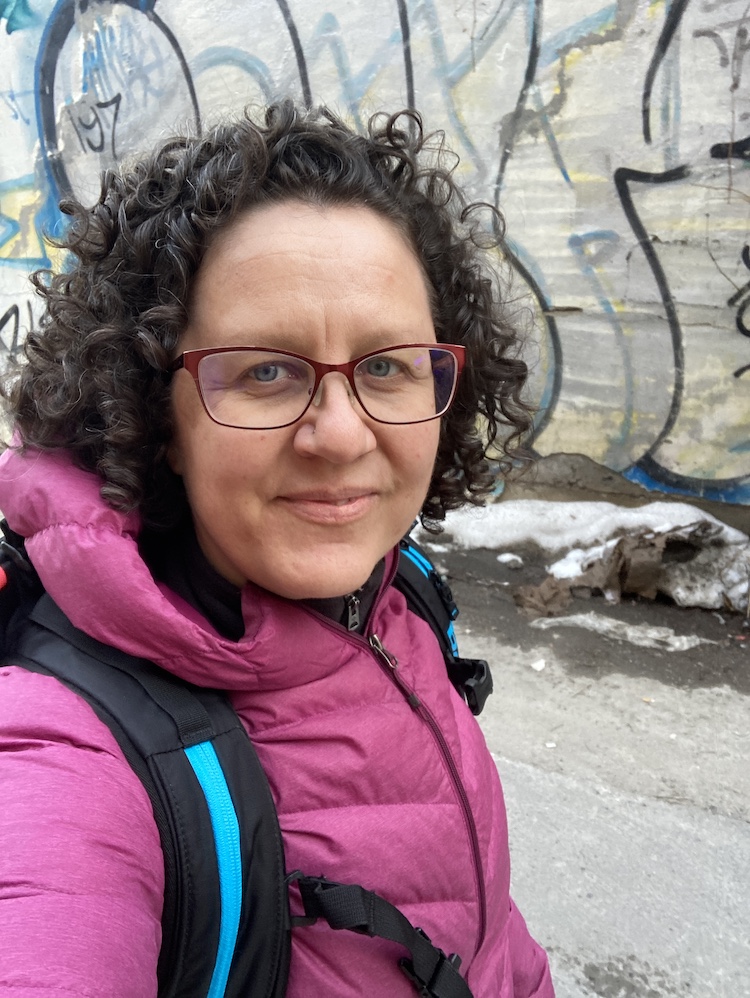Get posts by email
My own migration story
April 18, 2023
This is part three of an essay divided into four parts for easier blog reading.
You can read the entire essay in pdf version here.
I’ve also produced an audio recording the complete piece. It’s 1 hour long.
↓ Audio recording of essay↓

This post is a summary of my own migration. Which I’ve documented in bits and pieces on the blog in these other posts:
- The loopy trail that is our lives (The mountains are calling) (2019)
- Moving to the margins (2019)
- A time of new beginnings (2015)
- How does a western anglophone end up living rural Quebec (2012)
- Launching Life 3.0 (2011)
- Moving forward (2005)
Conclusion of last installment of the essay:
In summary, migration is not the problem of our species. It’s how we act in the places we inhabit. And how we act depends on what we believe about ourselves, our identity, and our relationship with everything around us.
Going on an adventure

I grew up in a place. Like all places, this place had its own history and cultural stories of meaning and purpose, from the micro to the macro level.
I left as a young adult on an adventure with my husband. And in going, I discovered, as all travelers do, that there were other cultural stories of meaning. We happened to like those stories better. And we liked the physical landscapes of those stories. So we did not feel drawn back to the economic, political, and social narratives of our upbringing. And we didn’t feel drawn back to that particular piece of land, the Central Alberta parkland, either.
This may be because we are children and grandchildren of immigrants. Migration is our family story. And unlike our grandparents and great-grandparents going many generations back, Damien and I have never worked the land as farmers.
We like going to new places and meeting new people. We love to travel. We’re interested in different ideas and ways of doing things.
Damien and I are both thoroughly progressive in that we don’t believe in holding to tradition just because it’s tradition, in keeping to old ways and old understandings because that’s how it’s always been done or that’s how it used to be done before our modern experience. Traditions, tools, and technologies must be able to justify themselves in our own space and time, which includes the personal context of our marriage and family life.
My husband, in particular, does not seek domination over others, and the nature of his being has encouraged the growth of my own desire to live in non-exploitative, mutually flourishing relationships.1 We have critically evaluated and discarded the traditions and beliefs we inherited that don’t support mutual flourishing within our own relationship and family culture.
These interests, traits, and questioning nature are who we are, as a couple. They drove our own migration and are the orientation and perspective we bring to community life.
Honesty about accounting and risks
After we left Alberta, family was the only thing that called us back. But travel and communication technologies bridged that gap. As a middle-aged woman with young adult children, I’ve gained the life experience to see it was probably painful for our families to see us go. Our actions also contributed to the conditions that deprived my children of the tight-knit, close community familial connections I had as a child.
None of that makes it any less true that Damien and I loved the adventure of it all.
We feel rich in experiences and immensely proud of our most important accomplishment: raising our children and building a close and connected family where individuality is honored in the framework of an unconditionally loving family community.
Our decision to go off on our own, even in this mobile age, is not exactly normative. We’ve repeatedly moved to places where we knew no one and had no connections. We put almost all our eggs into the basket of our nuclear family. A position supported by the conservative and religious teachings of my childhood and young adult years.
We left the village and depended upon one another. This carried a risk that may have sunk us. It didn’t, mainly because of our inherited social, spiritual, and cultural capital. We had models, skills, practices, and patterns of behavior from our upbringing that resourced us well for generative partnership and child-raising. And we had the education and skills to acquire the necessary economic capital to cushion us somewhat from calamity, something the village would otherwise provide.
We’ve had a very good life, but the question of “where is home?” has haunted and persisted through the years.
This is not a question my husband ponders, which is one of the clearest indications to me that not everyone will wrestle with the same existential questions in life.
Answering this question has been a journey and an evolution.

Religion
When I left the place (as in the region) of my childhood home, I defined home in my religious beliefs. My willingness to pick up and move across the continent and then move again to Maine was directly proportional to my assurance of finding particular churches in those areas.
I knew that if I could find a church, I would find community.
Christianity is not an inherited religion. Your membership in the group is not tied to any lineal affiliations - where you were born, your ethnicity, your parentage, etc. “There is neither Jew nor Greek, there is neither bond nor free, there is neither male nor female: for ye are all one in Christ Jesus.”
Particular beliefs, doctrinal assets, and practices are the portals of entry to the Christian community. Where you come from has nothing to do with it, except for how your background has or hasn’t exposed you to these ideas.
For years after leaving “home”, I defined home as belonging to the Christian faith.
Additionally, a sense of home was found in my relationship with and commitment to Damien. Ironically and incongruously, this was well-supported by both specific passages of Christian scripture and the elevation of romantic love and attachment in the modern psyche. Cue Edward Sharpe & The Magnetic Zeros.
We moved back to Canada in 2011 because the process of immigrating to the US through various work visas was too fraught and protracted. We didn’t move back because Canada defined our idea of home, but by virtue of our place of birth, it was our place of citizenship, which conferred certain rights, rights we didn’t have in the US as resident aliens.
Parents
In our transition back to Canada, we lived with my parents, who had moved to Nova Scotia a few years earlier. Their new house, which my Dad had just built the previous year, couldn’t accommodate sleeping our family of five. And so while the kids slept in the house, sharing one room, Damien and I used the camp trailer that my parents had lived in on the property while they were building.
I was welcomed home, without condition and with much accommodation, and the entire experience reminded me that part of my understanding of home was and would always be rooted in my parents. Living in Nova Scotia with them was not returning home to “a place” I knew as a child, it was seeking shelter in “a relationship” I knew. A relationship that both parties had actively nurtured despite the physical distance of the intervening 12 years since I had left Central Alberta.
It took me some time into adulthood because of the aforementioned religious and romantic notions before I became cognizant that my relationship with my parents as their child was an immutable piece of my identity. I would never lose it, as I would never lose my identity as a mother. My identity as Damien’s wife could be lost in divorce, death, and remarriage. But my position as a child of Karen and Derryl was unchanging.
And as that knowing dawned on me, I realized that part of my sense of home would always be found in my relationship with my parents. Not necessarily to the place they lived or the house they inhabited, but to them in particular. Their relationship with me became part of my answer to the “where is home” question.
But I wanted more than that relationship. Both Damien and I wanted our sense of home to be defined by particular experiences and places, specifically mountains. So we moved to the Gaspé peninsula to make that reality.
Topography & Land
I feel a kinship with mountains. Mountains move me. They call me. I want to live in them.

not the Gaspé, photo from snowshoe trip in Charlevoix, QC
I was not born in them. I was not raised in them. The eastern border of Canada’s magnificent western mountain ranges was a mere 5 hours away from my childhood home, but they were not part of my life. They were an “outside the system” experience. They were summer vacation and winter ski trips. I loved visiting them, but my childhood sense of home and my attachments were to the prairie town where I went to school and church, my grandparents’ farm, and all my many relatives contained within this circle.
I choose not to carry regrets, there is literally no point; but my most pressing alternate-trajectory-life question is, “what if Damien and I didn’t move all the way east in our adventuring, exploratory phase but moved west instead?” I sometimes dream of the life that would have been possible from that theoretical choice.
If I knew at 24 what I had learned about myself by 34, I would not have moved east but would have told Damien to look for job offers south and west of Alberta. Recruiters and companies from both California and Washington state had been in contact with Damien. A move to either would have set our life on a completely different trajectory. One more likely to have landed us in one of my dream lives where we live in the Columbia mountain range of British Columbia.
(In that life two of our children would not have been born so I don’t want to go back and choose differently, but I do wonder.)
I didn’t know a lot of things at 24. Including that one day, my spirit would say, “seek the mountains”, and I’d be on the other side of the continent from where the most spectacular North American mountains are. Mountains that were practically in my backyard as a child.
This is also why I don’t appreciate the simple “have affection for the place you live” remedy for migration. It doesn’t account for people’s lived experiences of belonging, attachment, and kinship for geographic regions different from where they are from.
You may be lucky enough to be born into a region you love and to know a kinship with it because of long-standing land, cultural, or familial connections. But if, like me, your sense of connection and kinship is to other places, what then?
Opportunities
After a few years in the best mountains we could find east of the Rockies and close to Nova Scotia, we came to the realization that the Gaspé Peninsula would not provide what we wanted for our kids in finishing their formative years and launching them to young adulthood, namely post-secondary education options and cultural diversity found only in large populations.
We foresaw that the lack of both in the sparsely populated and definitively francophone Gaspé region would limit our children’s growth and opportunity. This is not to say these realities are de facto limiting, but they were limiting for our Christian, anglophone, homeschooled children. Our kids needed to see themselves and their family life reflected in their community. And to not feel like they were the only people “like them” in a place.
So we moved to find those communities. We chose Montreal specifically for its cultural diversity, arts and technology opportunities which aligned well with our family and who we saw our children becoming, and affordable post-secondary schooling options.

Living in Montreal with no family, no mountains and no purchase of a property to anchor us, the question of “where is home” became insistent, especially after I lost the religious beliefs of my childhood.
To be continued, next post.
Subscribe to my mailing list for free, to get the next installment of this essay delivered directly to your inbox.
Footnote:
- You can rightfully infer from this that his non-dominance over others has helped reveal my own desire for control over the actions of others. Damien’s example has helped me interrogate that drive to control (Where does it come from?) and also choose different ways of relating to people that are more aligned with the way I truly want to live and what I actually value.
Part of Series
You can subscribe to comments on this article using this form.
If you have already commented on this article, you do not need to do this, as you were automatically subscribed.





